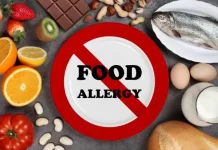Did you know that most of the corn we eat is genetically modified? Genetically modified organisms (GMOs) are all over the news with debate on the pros and cons of whether we should be consuming as much as we already do.
The advantages are pretty clear. GMO crops can be modified to protect them against insects and pests, survive stressful conditions, and create a greater yield for farmers. The cons of GMOs, on the other hand, can be a little bit muddier. Are GMOs bad? Read on to find out some of the negative sides to GMOs to help you decide for yourself.
1. Allergies
Allergies are the sixth leading cause of chronic illness here in the U.S., and over 50 million Americans experience various types of allergies each year. Given our susceptibility to allergies from both environmental and food reasons, many have concerns that GMOs can trigger an allergic reaction.
One of the best examples of this is from a study from the 1990s, where it was discovered that adding protein from Brazil nuts to soybeans could prompt an allergic reaction. This GMO food was quickly abandoned, and researchers who develop GMO foods continue to run tests to make sure allergens aren’t transferred from one food to another.
2. Cancers
Aiding the progression of cancer is another firm argument against GMOs. Cancers are caused by mutations in our DNA, and some people fear that consuming foods with added genes can affect our DNA.
The worry likely originated from an early study using mice that linked GMOs to a higher risk of tumors and early death. The study was retracted, however, due to poor design.
Based on data from the American Cancer Society, there is currently no evidence from human research that ties GMO intake to an increased (or decreased) risk of cancer. With this being said, no long-term human studies currently exist, so more research is certainly needed.
3. Increased Antibiotic Resistance
When scientists insert new DNA into plant cells, they will sometimes add in an additional gene to make the cell resistant to antibiotics. They can then use antibiotics to kill off plant cells that didn’t take in the new DNA.
Researchers are now finding that antibiotic-resistant genes don’t always go away when we digest GMO foods. it can also be passed through our feces into the sewage systems. Some experts are now concerned that these genes might be absorbed into harmful bacteria, and the usual antibiotic treatments would be ineffective against this new super-bacteria.
Are GMOs Good or Bad?
Concerns are certainly valid, and with the rising debates, you wouldn’t be blamed for asking yourself, “Are GMOs safe?”.
The bottom line is most foods in our local stores contain GMO ingredients for many reasons, cost-effectiveness being a top one. While some are concerned about the potential health effects, research conducted to date suggests that GMO foods are safe for our consumption. That doesn’t mean we shouldn’t stop testing and asking questions.
For more interesting articles, including food tips and tricks, head to our Lifestyle section to keep reading.























